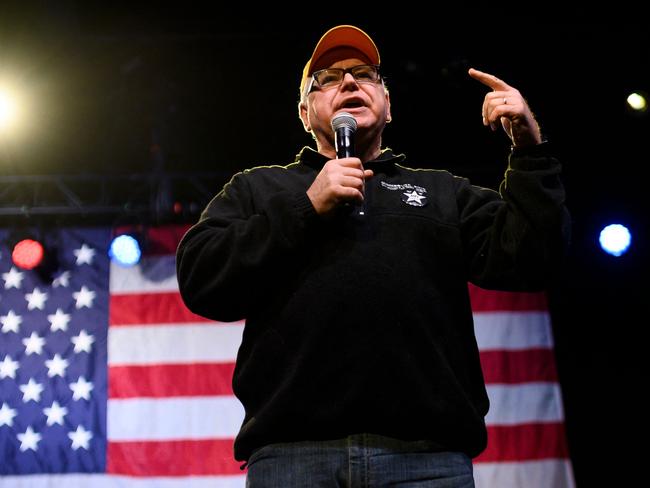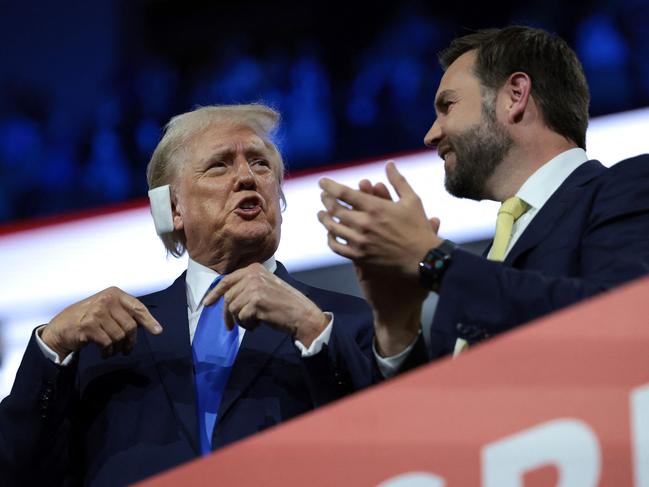Analysis: Electoral maths may not add up for Kamala Harris’ VP
Kamala Harris is hoping folksy Midwestern dad Tim Walz can help the Democrats reconnect to voters. But there is one big risk with her pick.
World
Don't miss out on the headlines from World. Followed categories will be added to My News.
The truth is that vice presidential candidates rarely decide presidential elections.
Even Donald Trump’s running mate JD Vance recently admitted as much, saying: “People are going to vote primarily for Donald Trump or for Kamala Harris.”
But it’s also clear that in the battleground states that will decide this year’s race, every vote is going to count. That’s why Republicans are second-guessing the former president’s bold choice of Mr Vance. And it’s why Ms Harris’s nomination of Tim Walz is similarly risky.
Just over a fortnight ago, when US President Joe Biden abandoned his re-election bid, the Minnesota Governor was barely on the national radar. His rise since then – propelled by his plain-spoken description of Mr Trump as “weird” – has been nothing short of stunning.

Mr Walz’s appeal to Ms Harris is obvious. He is a folksy Midwestern dad who doesn’t take himself too seriously, despite his impressive resume. That makes him a strong candidate to speak to voters the Democratic Party has been haemorrhaging to Mr Trump.
The Republican response to Mr Walz – that he is so liberal that he will “unleash hell on Earth” – is overblown. Yes, he has a liberal record, but as he sarcastically said of himself when asked about his policies including providing free school lunches: “What a monster.”
He is also an avid hunter who coached high school football, so he is a long way from the extreme left caricature drawn by Mr Trump. And to Mr Vance’s point, even if Ms Harris had chosen an even more centrist Democrat, what difference would that really have made for her to combat Republican attacks that she is a dangerous Californian liberal?

The real risk for Ms Harris in picking Mr Walz as her running mate comes down to geography – the subject he taught at high school – and electoral mathematics.
This election will be decided in seven states. Minnesota is not one of them.
Ms Harris probably will not win without Pennsylvania. And one of her other contenders was the state’s governor, Josh Shapiro, who received 56.49 per cent of the vote when he was elected in 2022. Mr Biden received 50.01 per cent when he held off Mr Trump in 2020.
Ms Harris’s other option was Arizona senator Mark Kelly. He received 51.16 per cent of the vote when he won four years ago, compared to Mr Biden’s 49.36 per cent against Mr Trump.
As for Mr Walz, at his most recent election in 2022 in Minnesota, his primary vote was actually smaller than Mr Biden’s 2020 presidential election performance in the state.
He is by no means a bad choice for Ms Harris. But on the night of November 5, if it looks like she is losing a tight race in Pennsylvania or Arizona, she will only have herself to blame.





